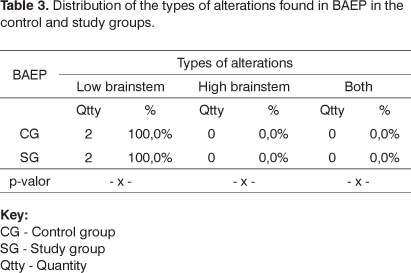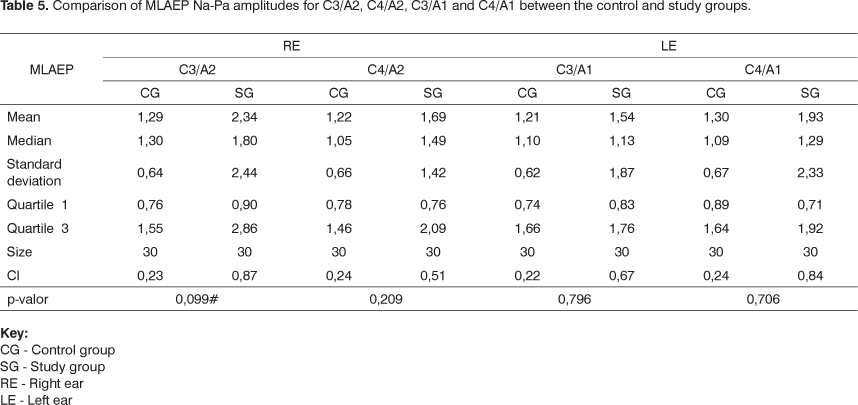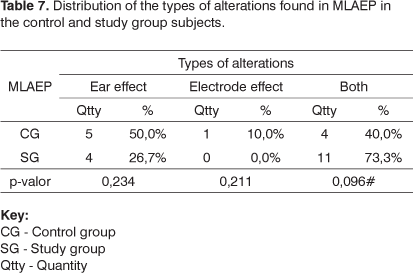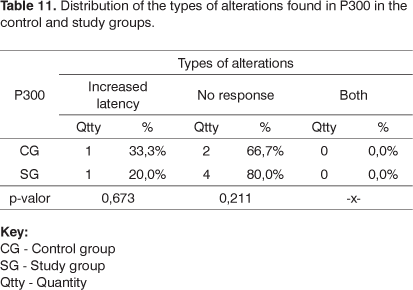Systemic lupus erythematosus (SLE) is a multifactorial chronic systemic inflammatory disease, of unknown origin, characterized by the presence of autoantibodies and polymorphic clinical manifestations. This disease may involve multiple organs and systems. The most common findings are articular, cutaneous, vascular, renal, neurological, cardiac, gastrointestinal, hematological, ocular, and auditory abnormalities. AIM: To investigate the central auditory function of subjects diagnosed with Systemic Lupus Erythematosus (SLE). MATERIAL AND METHOD: A time-series study was made of sixty subjects, aged between 21 and 46 years, which were divided into a control (n=30) and an experimental group (n=30). A clinical history, audiological evaluation (pure tone audiometry, speech audiometry and immitance testing) and short (ABR), middle (MLR) and long latency (LLAEP) potentials were carried out in all subjects. RESULTS: No statistically significant differences were observed between the groups in any of the evaluations. CONCLUSIONS: In this study there were no differences in short, middle and long latency auditory potentials between the control and experiment subject groups.
systemic lupus erythematosus; auditory evoked potentials; auditory brain stem evoked potentials; event-related potentials p300











